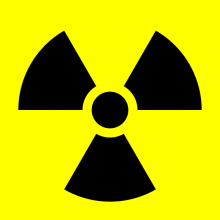A scientist closely linked to Iranian research into nuclear weapons is thought to again be heading up a research facility under a civilian guise, The Wall Street Journal has reported. Meanwhile, the United States and Israel are looking to public diplomacy to address the Iranian concerns—but with potentially different ends.
The same day a major British newspaper published a report saying the top US military official opposed unilateral Israeli military action on Iran, Israeli Prime Minister Benjamin Netanyahu announced he was going to talk to the United Nations about the general Iranian threat. In addition to their nuclear program, Iran is also a major world-sponsor of terrorism.
Worries about the danger Iran poses to the West and Israel are only deepening. The Wall Street Journal, citing intelligence officials who have seen intelligence from the International Atomic Energy Agency (IAEA), said Mohsen Fakhrizadeh’s new facility is believed to be involved in research with application to civilian use and nuclear weapons.
The Iranian scientist is considered one of Iran’s top nuclear weapons researchers—hence any research in which he engages would likely arouse suspicions.
While Israeli and some European officials are concerned about the overall progress being made by Iran toward nuclear weapons, the US newspaper contrasted that with US officials who do not believe that Fakhrizadeh’s work to be at the official level it once was. They contend there is still time for non-military means to prevent Iran from acquiring nuclear arms.
That may explain in part why US Chairman of the Joint Chiefs of Staff Gen. Martin Dempsey expressed concern to reporters in London about an Israeli strike on Iran’s nuclear facilities. The Guardian quoted Dempsey as saying such an attack would delay but not likely be able to destroy Iran’s program.
In light of that, Dempsey issued some of the strongest public US opposition yet to an Israeli unilateral strike, saying, “I don’t want to be complicit if they choose to do it.”
He again argued sanctions should be given a chance and worried the globally-united diplomatic effort to convince Iran to back down could be harmed by an Israeli strike.
Israel, however, is anxious about Iran reaching what one official called the “starting line” for nuclear weapons, according to The Wall Street Journal, at which point it would be too late for even a military strike.
Netanyahu, while not addressing Israeli military considerations against Iran, did say on Thursday that he planned to speak out against the Iranian threat in general at the UN General Assembly in New York in September. It had been unclear if Netanyahu would attend the summit, as heads of state are not required to go.
In a press release, Netanyahu was quoted as speaking out against anti-Israeli rhetoric spoken at the Non-Aligned Movement summit, which this year is being held in Tehran.
“In Tehran today, the representatives of 120 countries heard a blood libel against the State of Israel and were silent,” said Netanyahu. “This silence must stop. Therefore, I will go to the UN General Assembly and, in a clear voice, tell the nations of the world the truth about Iran’s terrorist regime, which constitutes the greatest threat to world peace.”
(By Joshua Spurlock, www.themideastupdate.com, August 30, 2012)

